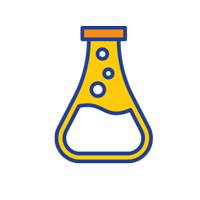Our Interview
Please note, this interview has been edited for reading purposes.
Robyn Shulman: Can you tell me about your personal and professional background?
Sandra Hough: I live in Beautiful Victoria, British Columbia. I’ve lived here for over twenty years. I have a wonderful supportive husband, and we have three beautiful children who we have the honor of raising.
Shulman: Can you tell me about your teaching background?
Hough: I have been a certified Early Childhood Educator since 2005 and am currently an Education assistant in the Greater Victoria School District.
Shulman: What content areas have you taught?
Hough: I taught everything from cooking, sewing, piano, Spanish, and English as a Second Language to elementary and middle school students. I am a lifelong learner.
Shulman: How did you get where you are today?
Hough: I am a Mexican immigrant who first came to Canada for medical reasons. At that time, I was seven years old. I only spoke Spanish (my mother tongue). I learned English and French, I was told, within three months. At the age of seventeen, I decided to immigrate to Canada. Due to more medical issues, I finally moved to Canada when I was nineteen.
Shulman: This interview is about “thinking” in two languages. Can you share your story about this phenomenon?
Hough: I have always considered myself fully bilingual, but I have yet to understand how I learned to think in two languages thoroughly.
This realization came one day when I woke up one morning, and my mother asked me what I had been dreaming about. I asked her, “Why?”
She said, “Because you were talking in your sleep.” I said, “Well, mom, what did I say?” She said, “Well, I don’t know because you said a couple of sentences in Spanish, but then you spoke in English, so I didn’t understand you!” At that time, I was ten years old and had been speaking English for three years.
Shulman: You picked up on English quickly. Did you find yourself helping others when you were young?
Hough: Yes, I later found myself translating for adults attempting to talk to children and children, trying to convey something to an adult, like a patient to a doctor or a parent to a doctor.
Shulman: What motivated you to help others translate language?
Hough: I wanted to remove the look of confusion, frustration, and anxiety from people’s faces. I learned very quickly how speaking to people in their own language instantly put people at ease in any situation, be it a doctor, a patient, a student, a customer, or a salesperson.
It didn’t matter which side of the counter I was on if we shared a language; it was all a lot easier.
Shulman: Tell me how speaking two languages helps you connect with your students.
Hough: Nothing makes a message hit home more accessible and faster than giving instructions to someone in their own language.
I now apply that in teaching anything to anyone to make that connection. Because if there is no connection, there is no forward movement in a relationship and much less in learning.
Shulman: Thank you for sharing your story with us.
You can follow Sandra’s work on LinkedIn too.










